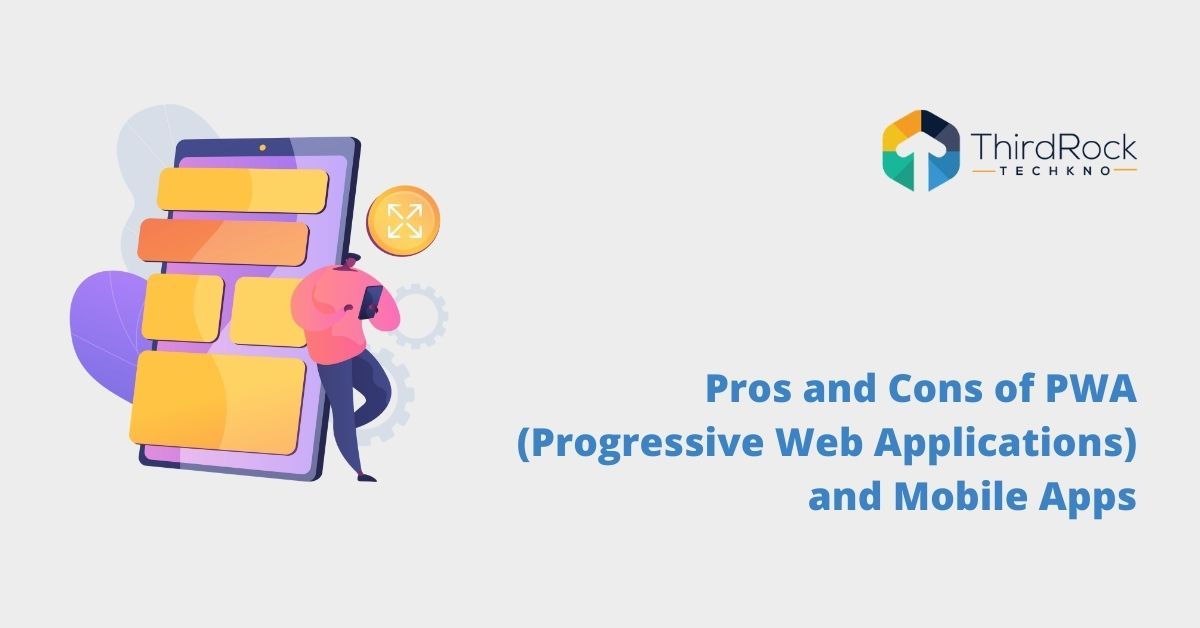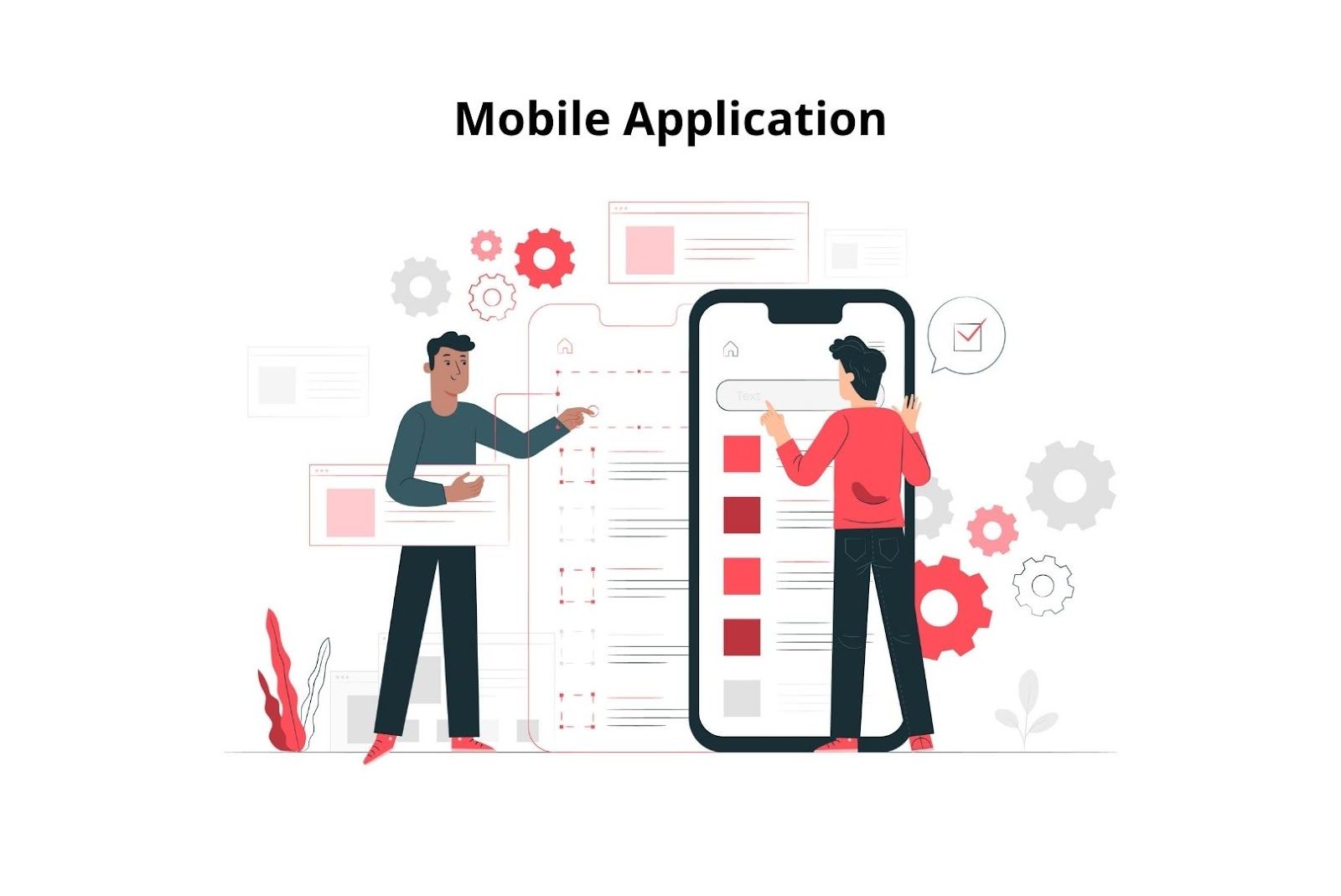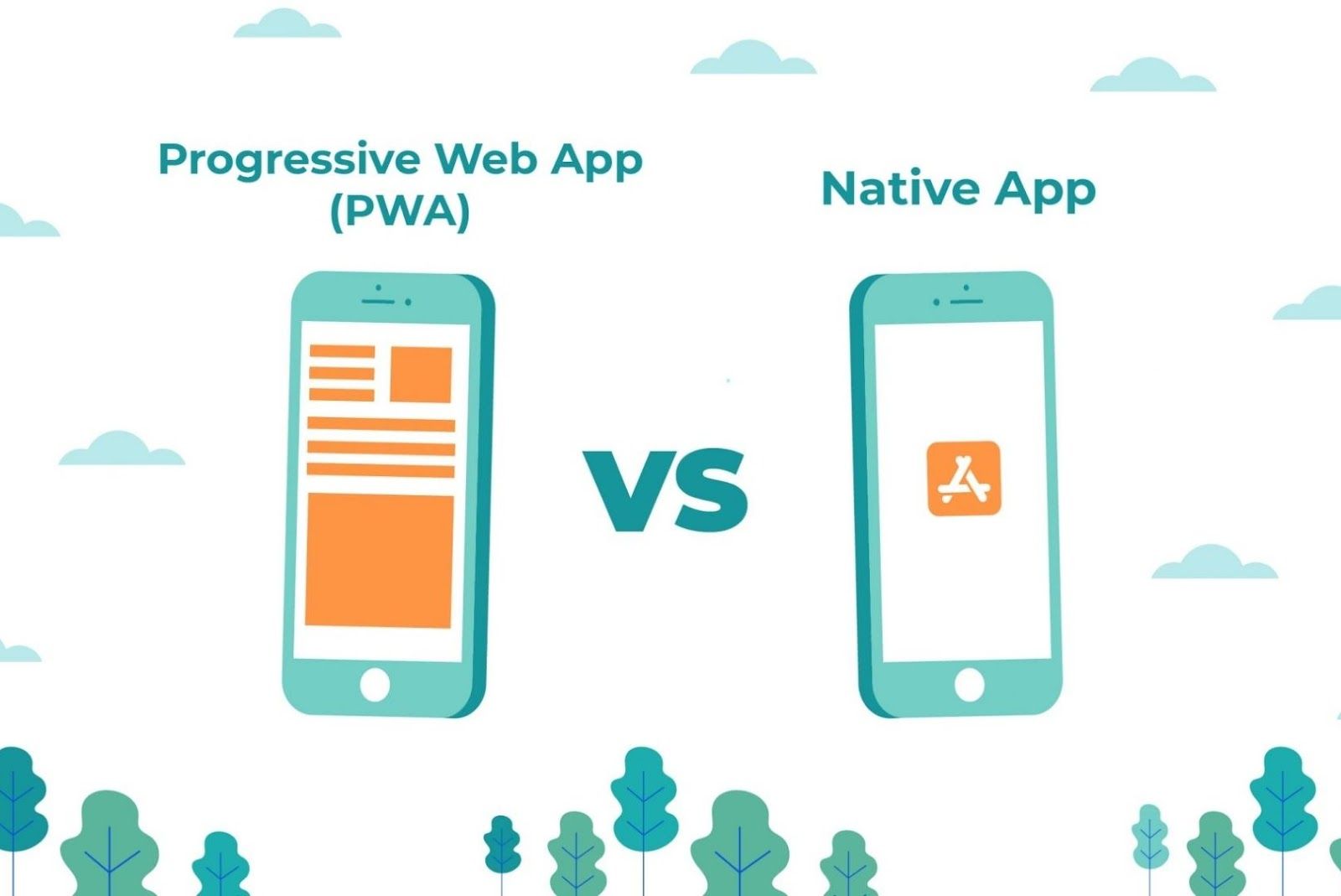
Let us hit the nail on the coffin upfront. Whether it is a progressive web app or a native application, the aim of a business organization is to reach as many people as possible. In the modern era, both mobile apps and mobile websites could look very similar. Therefore, it is the actual needs of the business organization that decides which platform they choose.
Mobile apps vs Mobile websites: which one is right for you? This question has been giving sleepless nights to the business owners since time immemorial. The selection of mobile apps and mobile websites depends on various factors such as:
- Available Budget
- Target Audience
- Features
- Basic Intention
Moreover, after the horrors of 2020, businesses have become more peculiar in selecting mobile apps and websites. We here have listed some of the important factors that will help our readers understand the pros and cons of PWA and native applications. The facts and stats will guide you in your mobile commerce strategy for 2021 and beyond.
Table of Content
- Mobile apps vs Mobile websites: What’s the difference?
- Mobile websites vs Mobile apps: The latest stats analysis
- Advantages of Mobile websites
- Advantages of Mobile apps
- Disadvantages of mobile apps
- When to build a mobile application
- When to build a mobile website
- Progressive Web Apps vs Mobile Apps Comparison Summary
- Conclusion
Mobile apps vs Mobile websites: What’s the difference?

In simple words, a mobile website looks similar to any other website that consists of browser-based HTML pages. These pages are linked together so that the user can access them using an internet connection. One peculiar characteristic of a mobile website is that it is designed for small devices and touch smartphones.
Moreover, responsive websites that were designed to work on any device are increasingly becoming the standard for mobile websites. Responsive websites can easily adjust to any screen size or layout. In addition, the traditional progressive web apps can display images, content, video, and data also.
As far as mobile apps are concerned, they are specifically used in mobile devices. The user can download and install the app which can fetch data from the internet, just like the mobile websites. In addition, mobile apps can download data and information which can be assessed with an internet connection.
Mobile websites vs Mobile apps: The latest stats analysis
The battle between progressive web apps vs native becomes even more intriguing when it comes to statistics. According to a report by App Annie, in 2020, the mobile app industry generated a revenue of $189 billion. If we compare this to 2015, the revenue increased by more than 450%.
Despite the slow global smartphone growth, growth in the mobile app development industry showed no sign of slowing down. The total percentage of mobile share in the digital minutes spent by the users has also risen globally. Mobile devices are responsible for 71% of the digital traffic in all of America. Whereas, it is 71% in China, 67% in Spain, and 75% in Mexico.

Another interesting fact is: more than half of the global web traffic is generated through mobile applications. Since 2017, this ratio has remained at 50%, although it became 51.92% in the first quarter of 2020.
Extensive researches showed that users spent only 10% of their total digital time browsing the internet. Moreover, for the eCommerce market, the difference becomes even steeper. Mobile apps users spend an average of 201.8 minutes/month shopping as compared to 10.9 minutes/month spent by website users.
Therefore, if we go according to the present trends, the progressive web application users are going to deplete further with time. On the other hand, native applications will rise as businesses look to expand their horizon at a rapid rate.
Advantages of Mobile websites

If your business organization is looking to increase communications and marketing, progressive web application development should be your go-to thing. Progressive web apps have a number of immaculate advantages that will make more sense in your global mobile outreach strategy.
Mobile app websites are more compatible
As compared to Native apps, a single mobile website as a better reach. Unlike the native apps, the developers do not have to develop a separate version of mobile app websites for different devices. Besides, users need to download and install the app which can post hindrance to the initial engagement process. In addition, it is easy to integrate the mobile website URLs with other mobile technologies like QR codes, SMS, etc.
Mobile websites are more immediate
Be it an Android or iOS device, mobile websites are instantly accessible to users across all platforms. There is no need to download the progressive web app to look at its content like the mobile apps.
Mobile websites are very cost-effective
Developing a progressive web app is less time-consuming and cheap as compared to a native application. Moreover, if you are a business that is looking to have a presence on different platforms, you should opt for mobile websites. Because it will require more money and time to develop an application for different OS platforms.
Easy to maintain
Businesses should understand that the investment in apps vs websites does not end with their launch only; after launch support and maintenance also becomes a major factor. Be it compatibility, testing, upgrades, etc. mobile apps are complex to maintain as compared to mobile app websites.
Longevity
There is no question about the lifecycle of a mobile website. According to several pieces of research, the shelf-life of a native application is very short. Also if a mobile app is not used for 30 days, it is unlikely that it will be used again. Mobile websites are ubiquitous and their longevity is not time-bound.
- Broder Reach
The progressive web apps have a broader reach and high shareability. It is accessible across all the leading platforms thus plays an important role in expanding the user base.
Limitations of Mobile Websites
Like every situation, mobile websites have their own set of limitations. We have seen some of the high-flying advantages of progressive website application development. Now it is time to look at the other side of the coin.
User Experience
It would not be an overstatement if we say that we are living in an experience economy. In the case of mobile websites, its experience is significantly different as compared to the desktop experience.
With mobile websites, the users have to face single-window restrictions. This means that the user has to leave the current page in order to access other pages. Also, it is impossible for the developers to fit everything in one page of a progressive web app.
No offline access
It is impossible to develop a mobile website that works offline with the majority of the function. Even if the progressive web application is lightweight, it can work offline only with limited functions. Moreover, you need a good internet connection to run the website in a fruitful manner.
Problem of inconvenience
No matter how responsive the mobile website is, it cannot leverage all functions that you see in a smartphone effectively. Specific features such as calling, GPS, camera, etc. are not well-developed in websites as they are in mobile apps.
Developers have tried to solve this issue by including APIs and libraries but the results are not up to the mark.
Advantages of Mobile apps

The biggest USP of the native applications is that they are designed keeping a specific platform in mind. Moreover, native apps are much faster and responsive as compared to progressive web applications. We’ll see other advantages of mobile apps in detail below:
Ease of Customization
With the mobile apps, the user can set their preferences as soon as they download the app. Because of this, it is easier for businesses to offer personalized services to their users. According to the user’s data, companies can offer them special services according to their likes.
Moreover, with features such as push notifications, companies can send tailored messages to the users and increase app engagement. From the customer’s end too, customization helps them to get the most out of the app. Thus, you should always choose a leading mobile app development company to leverage such benefits
More ways to interact with the user
Through a native mobile application, a business organization can remain in touch with its customers 24/7. Be it sending customized messages to offer instant answers to customer’s queries, everything is done instantly with native apps. Because of the mobile application, the user can interact with the company via various social media platforms as well.
Offline work-mode
Unlike progressive website applications, native applications can work without an internet connection. Although there might be instances where the mobile might require the internet, it can still offer many features offline. This features provides the liberty to the user to access the required information anywhere, anytime
Engaging user interface
Mobile applications have a very free-flowing and easy-to-understand user interface. Because of this, the user can complete various tasks simultaneously. Besides enhancing the user experience, native apps offer some user-specific features which are impossible to include in websites. Moreover, a progressive web application framework can’t always guarantee standard functionality.
Disadvantages of mobile apps
Mobile apps have risen by leaps and bounds, especially in the past decade. Despite this, it has some disadvantages that can put a break on your business expansion. We have listed some of the significant disadvantages below:
Frequent support and maintenance
As the native applications are developed separately for different OS platforms, its maintenance requires a lot of effort. In addition, as the range of native applications is very wide, the maintenance process is not cost-effective as well.
The developers need to provide regular updates in order to be compatible with each type of device. Moreover, the users have to constantly download the upgrades to leverage the benefits of the app. Also, since the upgrades are so frequent, the app developers also have to take the approval of the app marketplace. This in itself is a tedious task.
Compatibility issues
The mobile application should always be on the top of its game to function properly in today’s rapidly changing environment. As in native applications, every platform viz. iOS, Android, Windows, etc. requires a different version, ensuring compatibility can be a task.
Although it is possible for businesses to develop cross-platform apps, they don’t provide the same UX as native.
When to build a mobile application

Building a native mobile application solely depends on your specific business needs. For example, if you are looking to develop a device with inbuilt features such as GPS, cameras, etc., you should opt for a mobile app.
A mobile application becomes a good choice if you are looking to build a platform with various functions. Also, if the data is in various forms like text, music, videos, etc. native mobile applications become a better choice.
When to build a mobile website
Before building a progressive web application, the business should first define its needs and utilities. For example, if your main aim is to develop a traditional eCommerce store, you should first consider building a website. Moreover, with a website, you can reach a larger audience without putting in much effort.
Progressive web apps can also be a great option for an MVP. Because of its cost-effective nature, building a website would be a convenient option to get feedback from the audiences.
Progressive Web Apps vs Mobile Apps Comparison Summary

To quickly give you a summary of the ‘app vs mobile website’ saga, here is a quick revision:
- PWA can work with only limited features offline. Whereas, native applications work well offline as well
- Progressive web apps have an equal display on all the platforms. For native apps, the developers have to design the display according to the platform
- Mobile websites are very cost-effective and unlike mobile apps, do not require regular updating
- PWA has a wider reach as compared to native apps
- Mobile apps provide better personalization and are more convenient as compared to mobile websites.

We are a team of expert developers, testers and business consultants who strive to deliver nothing but the best. Planning to build a completely secure and efficient application? 'Hire Dedicated Developers'.
Conclusion
The bottom line here is: the businesses must be fully aware of their needs and requirements before making a conclusion. It is not about picking between PWA and mobile apps, it is about choosing the right platform for the right situation.
Partnering with an experienced app development company can help you evaluate both options accurately. We, at Third Rock Techkno, strive to help our clients scale their business with the help of efficiently built apps across the industries.
If you are planning to build an app and aren’t sure which tech stack you should use, get in touch with our consultants for a free consultation call today.
Looking For Expert Guidance on Your Dream Project?
Our diverse team of industry leading veterans can help you build the most viable solution.
Schedule a free consultation call

